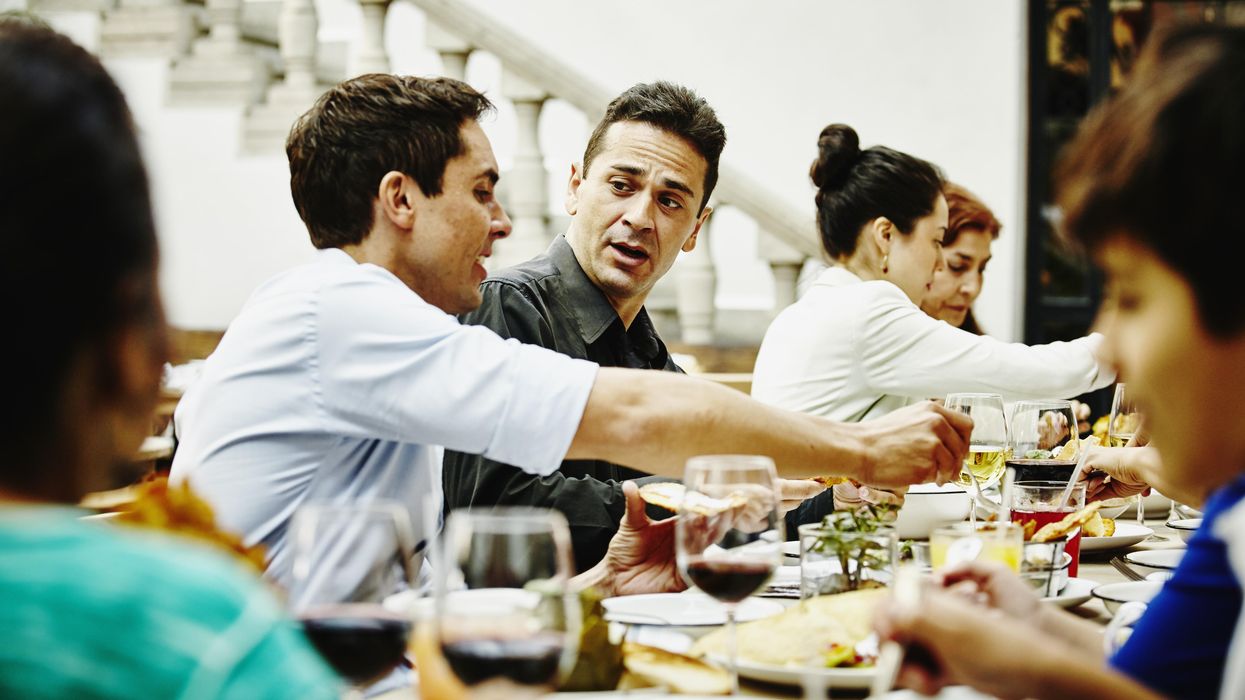Gaylord is a member of the Living Room Conversations advisory board and executive director of HomeAhead.
A friend recently asked, “How do you do it? How do you deal with the vast political differences in your family.”
My family ranges from Trump-voting Republicans to far-left Democrats and most every position in between. How do we coexist? I’d be lying if I said it’s easy ... especially during election years and sensational news events. My politically varied family stays connected, even though the connection is sometimes tenuous, through celebration and tribulation.
When my house almost burned down in the Colorado Marshall fire almost one year ago, all of my family members reached out to offer comfort and support – whatever we needed. When one of my children suffered from a difficult illness, everyone was there, in my corner, offering love and support.
When there is a death, birth, celebration or hardship in the family we come together. We’re not always graceful in our interactions but we try. We have some simple rules about not talking about politics. Sometimes we gingerly cross that line, and sometimes we trample the line. And then we regroup and return to baseline, remembering and prioritizing our connection to one another.
At our core, we are simple beings who want love and belonging. When I am devastated by a loss I don’t care about politics – I want love and comfort. When there is something to celebrate, I want to celebrate with my family. In my world, where the rubber meets the road, there is no place for politics.
It is likely that I’ll never agree with some of my family members’ politics but I will love them and they will love me all the same.
Some of you will call me naive, irresponsible, maybe even “Pollyanna.” I’m okay with that because in my world, love wins – and so do I.
Argue, attack and avoid. What else is there?
My 18-year-old son recently told me about a conversation he had with a couple of college friends. They were discussing Covid-19, mask-wearing, and the politics involved in the pandemic. One friend expressed a very different view than the other two. Once the friend realized it was a 2-on-1 dynamic, he quickly shut down the conversation saying he didn’t want to argue.
My son asked me why it seems we have only a couple of options when disagreements arise, especially political disagreements. Why is it that the prevailing response is to argue and attack, or avoid the conversation altogether?
This launched a terrific conversation between me and my son about other options. Of course, my tenure with Living Room Conversations could not be ignored, as it is my belief that there are much better options. I encouraged my son to approach a second conversation with his friend in an LRC sort of way: with curiosity, kindness, respect and deep listening.
I reminded my son that this particular friendship has been a lifelong one, and that for him to invite his friend into a deeper discussion, the friend would need to feel safe that the friendship would not be jeopardized. I asked my son to consider this seriously, as it can test our ability to remain in friendship with one who espouses opinions that we find objectionable. Of course, the other side of the coin is that by having the conversation, my son could practice and begin to hone the skills to remain in a friendship with someone who sees things very differently.
My son decided to seek out another opportunity to have a second, deeper conversation with his friend. He reported back on his conversation. He found it interesting as he now has a better understanding of his friend’s perspective. More importantly, he exercised a muscle that is horribly atrophied in our conversations, communities and country – that of being civil and friendly in a conversation with someone who has a different perspective. I am proud of my son and I will encourage him to do more of this. It will make him a better-rounded, more intelligent, compassionate person. It will strengthen his friendships. It will allow him to begin to create and live in a world where he can coexist and even flourish, despite differences.
As for the health of the friendships after the risky conversation, they seem right on track. Recently, the three friends enjoyed a day of skiing in the Colorado mountains. Onward and upward, my son!



















Trump & Hegseth gave Mark Kelly a huge 2028 gift